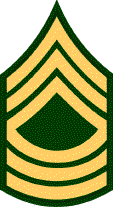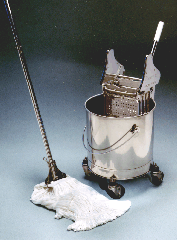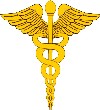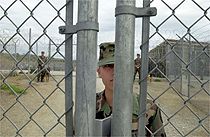 MASTER SGT. JOHN “JACK†STEELE, ADJUNCT PROFESSOR OF LAW
MASTER SGT. JOHN “JACK†STEELE, ADJUNCT PROFESSOR OF LAW
Introductory Remarks
Those of you who have been reading this Blog know that, for better of for worse, I have had first-hand experience with Army basic training and drill sergeants. However, many of you do not know that I also have had first-hand experience with law school and law school professors, having graduated from law school some 19 years ago. About a month or so ago, my cousin Jack, the guy we all can blame for suggesting I do a Blog, fondly referred to his law students as “raw-CROOTS†in the legal profession. That got me to imagining what it would be like to put the two worlds together – drill sergeants and law professors, basic training and law school.
The idea was banging around in my head for weeks, often causing me to chuckle to myself, something that has always served me well as a test of what others might find amusing. So, here it is – a work of pure fiction, but clearly inspired by having been a draftee in the sixties and a law student in the 80’s (I had a different career in between the Army and Law School, but that’s a story for another day).
I hope you enjoy reading it even half as much as I enjoyed letting my mind wander between the basic training and law school worlds and committing the strange proposition (or is it?) to the written word.
In parallel, I will continue to share some of the real Army stuff, which should be readily distinguishable from the story of Adjunct Law Professor John “Jack†Steele and his first-year legal raw-CROOTS.
First Installment: The Torts Class Meets Master Sergeant/Professor Steele
The first week of classes was just about over at the Blackacre University School of Law. By this time, the students had already met their professors for contracts, property, civil procedure and legal writing. They had the bloodshot eyes borne of trying to keep up with the murderous reading assignments each professor dished out without any regard for the volume of reading being assigned by the other professors.
Completing the reading had been difficult enough, because virtually none of it was a quick read. Quite the opposite; it was stilted, often barely intelligible, and sometimes it was downright opaque. Many of those sitting in the class were secretly hoping that they were not the only ones having trouble making sense of the material in their case books, and that they were not the only ones draining yellow highlighters at record speed, thinking it would all make more sense on the second pass.
Still, it was, after all, Friday, and there was only one more professor to meet. Despite their fatigue and jangled nerves, the 1L’s felt good about having survived the first week. They chatted about weekend plans and looked forward to the forty-eight hours of recovery time.
Some students were talking about Edward Carey, the professor who was scheduled to teach the torts class. They spoke of his reputation among the second and third year students as an easy professor who did not demand much from his students. The buzz was that he didn’t matter to him if his students attended his class, and he politely tolerated students who attended but who were unprepared. In fact, the word around the school was that all a student really had to do to pass Carney’s torts class was buy a Gilbert’s and check out Professor Carney’s prior exams – they hardly changed from year to year.
They figured this class to be a cakewalk.
Unfortunately for them, being students of the electronic age, they neglected to read the paper notice on the bulletin board posted in the hallway of the student lounge. It read:
“Professor Edward Carney has advised the Board of Trustees that, effective immediately, he will be retiring from his teaching position at Blackacre University School of Law. Professor Carney is looking forward to spending more time with his grandchildren. The Board of Trustees, the faculty and the students all wish Professor Carney a long and happy retirement. Professor Carney’s Torts 101 Class will be taught by John “Jack†Steele, MSG, Adjunct Professor of Law.â€
The lecture hall, which seated approximately 100 students was just about full by 8:25 in anticipation of the class beginning somewhere around 8:30 a.m. The room had become increasingly noisy, as the students, who were now getting to know one another better, traded stories about the past week. Several students in the front two rows were arguing about what Pennoyer v. Neff really was all about. No one was concerned about the time, as Professor Carney was not a stickler for time. Hell, sometimes, he showed up ten minutes late.
They hadn’t read the bulletin board.
Precisely at 8:29 a.m. the door to the lecture hall opened. Some students glanced in that direction to see whether the professor had arrived. Those who glanced at the door suddenly stopped talking and stared at the man entering the lecture hall carrying the Torts casebook.
He looked to be about 6 feet three inches tall and weighed about 190 pounds. He was dressed in his “Class A†uniform, Army green with brass buttons, light tan shirt and black tie. His trousers were perfectly creased and meticulously bloused over his spit-shined jump boots.
On his left lapel, he wore a round brass badge on which were the crossed rifles, signifying him as an infantryman. On his right lapel was an identically shaped badge bearing the letters .â€US.†Over his left pocket were four rows of multi-colored ribbons, and above the ribbons, partially hidden by his left lapel was the Combat Infantryman’s badge, a rectangular blue badge bearing a silver long rifle. The blue badge was over a silver oak wreath, the two ends of which met at a silver star, which signified that he had served as an infantryman in combat in two wars. He wore a different unit patch on each arm over the yellow stripes – three stripes up and three chevrons down, signifying the rank of Master Sergeant. Over his right pocket was a simple black nametag that read “Steele†in white letters. Most striking was the Army Drill Sergeant’s hat cocked frontward, with the leather strap around the back of his head.
The volume of conversation diminished with each step Steele took across the front of the lecture hall. By the time he reached the center of the room, very few people continued to speak. He turned towards the class and placed the casebook on the lectern. Now, everyone had stopped talking.
“Attennnn-HUTT!†he bellowed, as he stood erect in front of the class, feet spread shoulder width apart, with his hands on his hips.
The class collectively fidgeted, as they looked at one another in fear and amazement.
Virtually every one of them was thinking, What the hell ….?
Steele did not move a muscle, and after a half-minute passed (which seemed like an eternity to the students), he roared again, “Attennn-HUTT!†Confused looks and more fidgeting spread across the audience. Most students looked down at the desk; others looked around the room. No one wanted to make eye contact with what they perceived to be the madman in front of the class.
Another long, silent minute went by, and Steele said for the third time, “Attennn-HUTT!†When no one moved, he said, in a voice hardened by combat and years of calling cadence, “I thought I made my self clear. I’ll stand here every gott-damned day just like this until Christmas until you maggots figure out what to do.â€
Seth Tompkins, a frail kid with wire-rimmed glasses in the front row, after a false start or two, slowly got out of his chair and stood up. He quickly looked back to see if anyone else was standing. They were not.
Steele looked at Tompkins and said, “Well, at least there is one man in this gott-damned class who is not dumber’n shit.â€
Chairs scraped against the floor, as the students, one after another, rose to their feet.
“Well, that’s a little better. From now on, when I enter this room, I expect you all to get off your asses and on your feet, and I expect you to be standing at ATTENTION. That means that you WILL stand perfectly erect. Your eyes WILL remain straight ahead. You WILL pull your chin back; your chest WILL be out, and your gut WILL be sucked in. Your hands WILL be held to your sides, with your thumbs held along the seam of your trousers. Your heels WILL be together, and your feet WILL be at a forty-five degree angle. Are there any questions?â€
No one spoke.
“Well gott-dammit, DO IT!!!â€
The students shuffled around trying to do what they were just told to do, but it all came so fast. What did he say about thumbs? As they each readjusted his or her posture, Steele walked across the front of the lecture hall and then up the stairs, glaring at the students and shouting, “Chest out! Suck the gut in! Watch those thumbs!â€
Tod Barringer, a student in the back row, audibly laughed and whispered something to the woman to his left.
Steele stopped talking and looked at Barringer, who was wearing a tee shirt that read “Phish – a Backyard Tradition.†Steele walked up the stairs, never taking his eyes off Barringer. When he reached the back row, where Barringer was standing, he put his face two inches from Barringer’s and said, “What’s your name, young man?â€
Barringer, a smirk still on his face said, “Tod Barringer.â€
“Well let me ask you something, Tod Barringer. Did I say something funny?â€
Barringer did not speak, but shook his head from side to side.
“Gott-dammit, answer me! I asked you a question. DID I SAY SOMETHING FUNNY?â€
“No. No you didn’t.â€
“Well then, why were you laughing? Are you some kind of gott-damned idiot? Idiots and lunatics laugh at nothing. Maybe you’re a gott-damned lunatic, Barringer. Maybe all that beer you drank and grass you smoked at Phish concerts ruined whatever little brain you started out with. I wont tolerate idiots or lunatics in my class. You read me, Barringer?â€
“Yes, sir.â€
“Don’t you ever call me ‘sir.’ Officers are called ‘sir.’ You see these stripes on my arm? That means I’m an enlisted man. I work for a gott-damned living. This goes for all of you dumbshits. When I ask you a question that calls for a yes or no answer, the proper reply is ‘Yes Sergeant’ or “No, Sergeant. You think you can handle that Barringer, being a lunatic and all?â€
“Yes sir…..I mean Sergeant.â€
Steele strode back down the stairs in the lecture hall and resumed his position behind the lectern. The students all stood in various approximations of the position of “attention,†every one of them wondering if this was some kind of bizarre joke.
He damned sure had gotten their attention.
Next Installment – Master Sergeant/Professor Steele makes some introductory remarks.


 Fort Dix, Basic Training, December, 1968. The surly mess sergeant used a piece of chalk to write the word “MOP†on my back. “You’re a mop, †he grunted.
Fort Dix, Basic Training, December, 1968. The surly mess sergeant used a piece of chalk to write the word “MOP†on my back. “You’re a mop, †he grunted. MASTER SGT. JOHN “JACK†STEELE, ADJUNCT PROFESSOR OF LAW
MASTER SGT. JOHN “JACK†STEELE, ADJUNCT PROFESSOR OF LAW Fort Dix, January 1969 – It started with a scratchy throat, and within 36 hours, I was having difficult time breathing; I could barely stand for more than 10 minutes, and I had a fever and chills. It was time to throw caution to the wind and go on sick call.
Fort Dix, January 1969 – It started with a scratchy throat, and within 36 hours, I was having difficult time breathing; I could barely stand for more than 10 minutes, and I had a fever and chills. It was time to throw caution to the wind and go on sick call.
 Even though the “vertical butt stroke†may sound like a groping technique or even a primer on personal hygiene, it is neither. It is one of a series of whacks, slashes and thrusts, collectively known as the “vertical butt stroke series.†Such was bayonet training in 1968 – 1969 in Army basic training at Fort Dix.
Even though the “vertical butt stroke†may sound like a groping technique or even a primer on personal hygiene, it is neither. It is one of a series of whacks, slashes and thrusts, collectively known as the “vertical butt stroke series.†Such was bayonet training in 1968 – 1969 in Army basic training at Fort Dix. It’s the acronym for being “absent without leave,†a subject that was stressed right from the start at Fort Dix, where in December 1968, thousands of draftees were being trained to be soldiers. On our first night in the Army, we learned what A.W.O.L. meant, and we were warned of its dire consequences. Anyone who is not “present or accounted for†is classified as A.W.O.L. So, if in the morning you are not “present or accounted for†you are technically A.W.O.L. Sleep late and no one knows where you are; you are A.W.O.L.
It’s the acronym for being “absent without leave,†a subject that was stressed right from the start at Fort Dix, where in December 1968, thousands of draftees were being trained to be soldiers. On our first night in the Army, we learned what A.W.O.L. meant, and we were warned of its dire consequences. Anyone who is not “present or accounted for†is classified as A.W.O.L. So, if in the morning you are not “present or accounted for†you are technically A.W.O.L. Sleep late and no one knows where you are; you are A.W.O.L.


